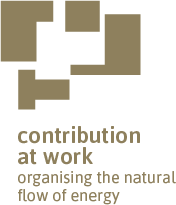Team motivation: What if reality is more complicated than the experiment?
Since January, when I started my own business, Contribution at Work, I am motivated, every day. Not that I’m always ‘happy’. It is stressful to do your own thing, especially when you are not used to be self-employed. But life is not about being happy all the time, I am motivated because what I do suits me, it is important and it is what I want to contribute.
In my previous career, I was motived, most of the time. I liked my work. I was proud of the company I dedicatedly worked for many years. I was excited, thought positive about my colleagues and I wanted to contribute. Nevertheless, I did not feel free. Well, you might think, but that is not possible. If in a large company everyone is free to do whatever he or she wants, things spin into all directions. Direction and guidance are necessary. We need to work together to achieve something. Teamwork and team motivation are important.
What was difficult though is that I was supposed to cooperate with others while competing, simultaneously, with the same people. The reward system worked accordingly. This odd dilemma had a negative impact on team motivation. It is difficult to share ideas and work together while at the same time one is competing with one another.
That’s one of the reasons why I appreciate Dan Pink’s TED talk, “the puzzle of motivation”. Dan describes an experiment: a group comes together. They do not know each other. But they need to work together to solve a problem with limited resources at their disposal. The brief is to mount a candle to the wall as quickly as possible. A financial reward hampers the result significantly.
Dan stresses that social science experiments have shown for many years that financial rewards, in most cases, do not lead to better group results, especially in environments that need creativity and innovation. He wonders why financial rewards are still applied where they will not work according to scientists from renowned universities.
But what happens if time is added as a factor in this experiment? For example, people gain knowledge and experience over the years. Competitors get a competitive edge through new knowledge. Or circumstances change and demand drops. And, what if some people are more capable to think of different ways of hanging candles to the wall, yet others are very good in doing it repeatedly with consistent quality?
Teamwork is more complex than the use of financial incentives suggests. By introducing time, many factors emerge that can have a significant impact on the process and result of a team. So, what if reality is more complicated than the experiment?
Recent years saw many developments. Start-ups and innovative companies seem to organize themselves differently. Companies learn that it is important to move quickly (agility). Management layers are cut. In healthcare self-organizing teams were introduced. Organizations are moving from rigid staff appraisal systems to more flexible coaching – or to feedback conversations. Some companies dispatch of their staff appraisal altogether. There are stacks and stacks of new management literature and courses. Nevertheless, articles show that leaders question HR’s delivery. Self-organizing teams are there to stay, yet, simultaneously, rules and other bureaucracy overburden employees. And the question remains how to achieve 30% extra productivity and creativity.
If we want to improve team motivation, it must start with deeply understanding what motivates people.
Improvement begins with appreciating the context in which your organization operates and the product/service it delivers. Next, it is important to look holistically at the health of the human system in the organization and examine the pressure points. Thirdly, it is important to open up to what people wish to contribute and what they are capable off. After that, relevant interventions can be selected to improve the overall health of the human system. By using a good change methodology and systematic monitoring, sustainable results are established. And when, in a couple of years, we revisit Dan Pink’s TED talk, we understand the motivation puzzle better and we have improved team motivation and progress, it is a win-win for all.
Blog, Liesbeth Ummels, Contribution at work 15-03-2017
